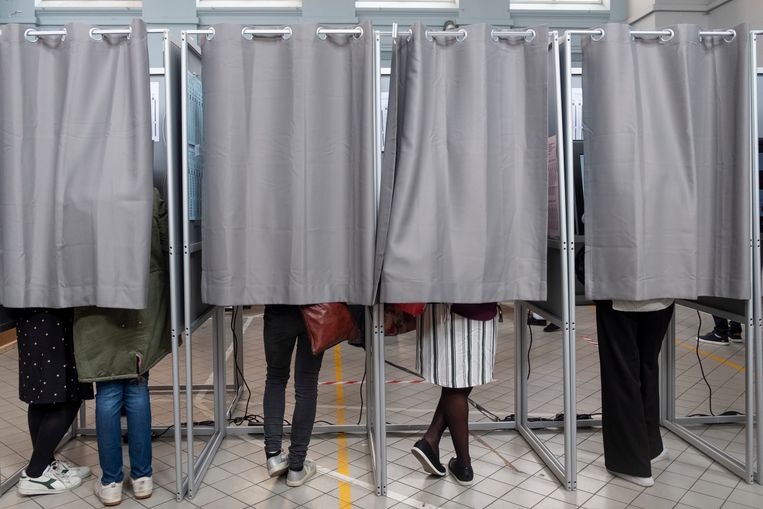The Flemish socialist political party Vooruit is looking to set up a pilot project in several regions in Belgium to make online voting possible by 2024, when local, Flemish, federal and European elections will take place.
Vooruit MP Melissa Depraetere put forward a proposal to change the current voting system, in which physically going to a polling booth on election day is the only option to vote, according to reports from De Morgen.
"If we can file our taxes securely online, then digital voting should also work. This is how we will avoid people dropping out because they have to bend over backwards just to be able to vote for the policies they want," Depraetere said on Twitter.
A recent study conducted by a consortium of universities, including the University of Brussels (VUB) and Leuven (KU Leuven), and commissioned by Minister of the Interior Annelies Verlinden found that the security and transparency of an online ballot are not yet sufficiently guaranteed to implement full online voting before 2034.
The Flemish opposition party's proposal puts forward a pilot project including several steps, stating that by the next elections in 2024, it should be possible to vote digitally in several municipalities, and suggests this number should be expanded by 2029 to finally make it accessible to everyone five years later.
However, Vooruit alone has no power to make decisions when it comes to changing the voting system. Federal elections are also a federal matter, changes to this system would need to be decided by the Belgian government, and could not be made by the Flemish government alone.
According to reports from Knack, Verlinden, who is also responsible for Democratic Renewal, said she would set up a pilot project by 2024, and hoped to completely switch to online voting.
Researchers who led the recent study found that the government "has to make preparations now" for digitalised voting to be possible by 2034.
It highlighted that the electoral law, which prevents online voting, must first be amended, and that it must fully invest in the digital infrastructure, whilst ensuring sufficient support for this way of voting among the population.
Pros and cons
Online voting could help better meet the needs of people who have difficulty mobilising themselves and that it could attract younger generations, who have grown up in the digital age, whilst helping the government save costs.
Although the study by several universities found that digitalising voting would increase voter turnout, as it would mean voting could take place across several days, researchers advised that the government should make the voting only partly digital, for specific groups, such as Belgians living abroad, to keep the integrity of voting.
Online voting is possible in several countries, but in Norway, France and Switzerland the system was dropped after discussions about the reliability of the results.

